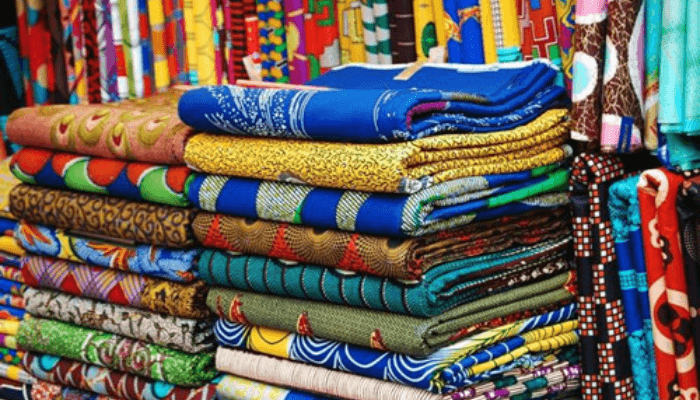FASHION

NIGERIA LOSES BILLIONS AS NEARLY 90% OF ANKARA FABRICS ARE IMPORTED – REPORT
A new report has disclosed that Nigeria’s signature fabric, Ankara, is largely imported, and it is costing the country’s economy billions.
Nearly 90% of “Ankara” print fabrics that define Nigerian fashion are imported, primarily from China and India, according to a new report by Consonance Investment titled “Who is Dressing 220+ Million Nigerians?”
Ankara is often used as Aso-Ebi, a Yoruba term meaning “family cloth,” during events like weddings, funerals, and birthdays to show solidarity.
However, despite being a cultural staple and Nigerians spending between ₦36,000 and over ₦20 million on fashion yearly, reliance on imported Ankara fabrics results in an estimated $3 billion loss in local value annually.

Credit: Consonance Investment
“Over 85% of fashion supply bypasses formal local industry channels. Nearly 90% of ‘Ankara’ print fabrics consumed in Nigeria (and Africa) are imported, primarily from China and India, costing Nigeria an estimated $3 billion in lost value to foreign manufacturers,” the report states.
It also noted that local fashion brands and textile manufacturers account for less than 15% of the clothing supply, largely due to inadequate investment in domestic production and retail infrastructure, adding that the value chain remains foreign-dependent.
“Most local brands have to build their own infrastructure across the value chain, i.e., from design to distribution.”
Nigerian consumers spend between $2.5 billion and $6 billion on clothes every year, but according to the report, the fashion industry only makes up $129 million (₦205 billion) of the country’s GDP, or 0.47% of the total. Most of the value is lost to imports and informal retail activity.


Nigeria imports up to $6 billion in apparel and textiles each year, excluding an estimated $1.2 billion in smuggled goods, while exports remain under $100 million, the report claims.
It added that despite strong domestic demand and cultural influence, the industry remains fragmented, underfunded, and full of untapped potential.

Credit: Consonance Investment
Retail in Nigeria is dominated by informal markets such as Balogun in Lagos, Onitsha in Anambra, and Wuse in Abuja, which account for around 60% of fashion retail activity.
The report also notes that “approximately 25,000 individuals are directly employed in Aba’s garment and leather clusters, with many more engaged in supporting industries.”
According to the report, at least 10,000 Nigerian fashion vendors operate on Instagram, powering a massive informal e-commerce scene.
The report states that less than 15% of Nigeria’s fashion market is served by structured capital from banks and government agencies, with the majority of fashion brands in the country being self-funded.
"This represents a significant development in our ongoing coverage of current events."— Editorial Board









